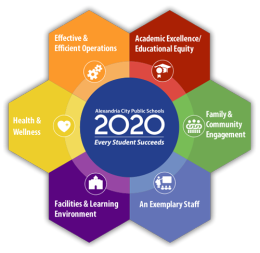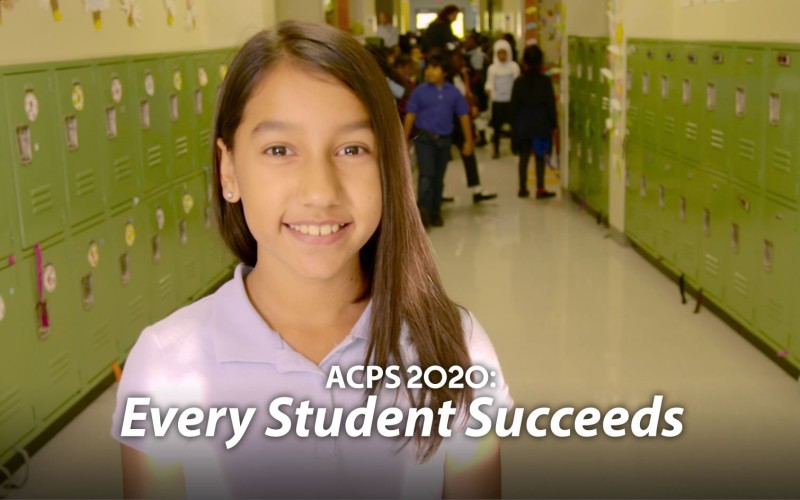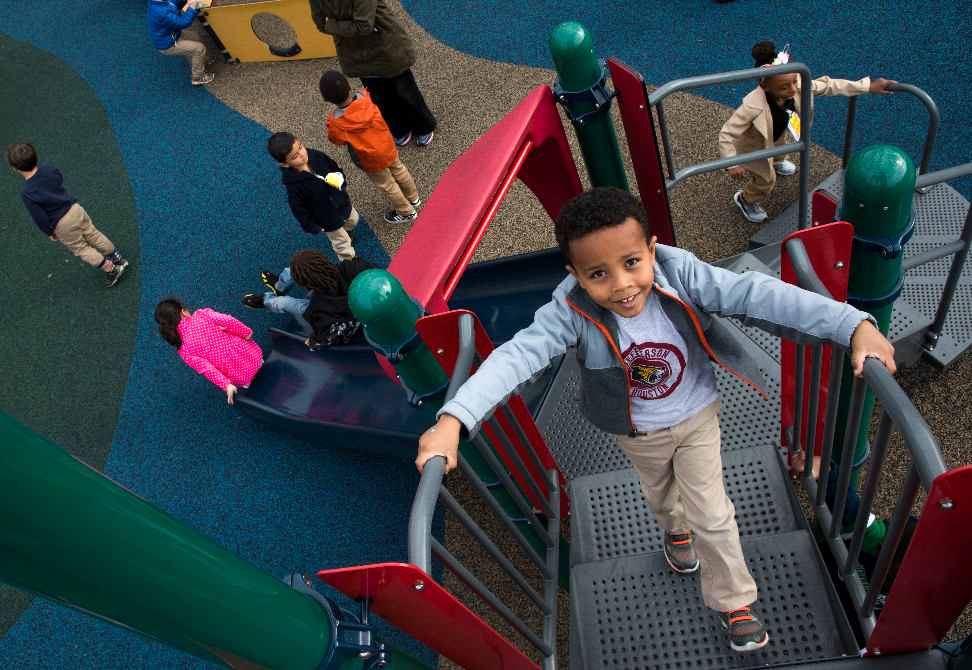Students who are healthy are better able to learn than those who are not. And, families that are knowledgeable about health and wellness activities are able to encourage their students to make healthy choices and pursue active lifestyles.
ACPS is committed to engaging in efforts and activities that enable students to be healthy and ready to learn in line with Goal 5 of the ACPS 2020 Strategic Plan. Our health and wellness goals are centered around student physical, social and emotional health; values, experiences, relationships and qualities that benefit young people; physical fitness, recreation and play; safe routes to schools; healthy meals and nutrition and persistence and resilience.
 This year, ACPS expanded the Breakfast in the Classroom program to Cora Kelly School for Math, Science and Technology, breaking down the social divide between students who have and those who do not by providing a free healthy breakfast for every student in every classroom. Other schools offering BIC include Francis C. Hammond Middle School and William Ramsay and Patrick Henry Elementary Schools. ACPS plans to expand the program to additional schools as funding becomes available.
This year, ACPS expanded the Breakfast in the Classroom program to Cora Kelly School for Math, Science and Technology, breaking down the social divide between students who have and those who do not by providing a free healthy breakfast for every student in every classroom. Other schools offering BIC include Francis C. Hammond Middle School and William Ramsay and Patrick Henry Elementary Schools. ACPS plans to expand the program to additional schools as funding becomes available.

ACPS partnered with the Alexandria Soccer Association to offer a new free after-school soccer program to students at William Ramsay Elementary School and Cora Kelly School for Math, Science and Technology. And, James K. Polk Elementary School received the 2017 Let’s Move Active Schools National Award, the nation’s top physical education and physical activity distinction for K-12 schools.
Our swim skills pilot program expanded to four elementary schools: James K. Polk, Samuel Tucker and John Adams Elementary Schools and Jefferson Houston School. And, our Bicycling in the Schools program, which teaches kids to learn how to ride a bike along with bike safety skills, expanded to six new schools.
During the past three years, ACPS has introduced Positive Behavior Intervention Supports (PBIS), Restorative Practices, a substance abuse counselor and a health and wellness focus and has seen a continued decrease in many risk behaviors by students in the past six years, according to the Alexandria Youth Risk Behavior Survey.
We look forward to sharing the impact of such programs on the health and wellness of our students.
 Last month, Goal 5 data was released for 2016-17. ACPS focused on two new health and wellness areas: increasing engagement in comprehensive school physical activity programs and the number of K-8 students walking or biking to school. Because this was the first year of data collection, results of performance on these measures will be available next year.
Last month, Goal 5 data was released for 2016-17. ACPS focused on two new health and wellness areas: increasing engagement in comprehensive school physical activity programs and the number of K-8 students walking or biking to school. Because this was the first year of data collection, results of performance on these measures will be available next year.
ACPS saw improvement in implementing the PBIS program, which aims to improve social, emotional, and academic outcomes for all students. We remained consistent compared to the previous year in the areas of chronic absenteeism, the level of student satisfaction with the counseling program, and in the number of elementary students eligible for free and reduced lunches eating ACPS meals.
Areas that saw a decline last year include the number of new teachers receiving up-to-date family life education training and the number of middle and high school students eligible for free and reduced lunch taking advantage of ACPS meals.

To address areas of decline and ensure continued growth in all areas, ACPS will collect and use student feedback around counseling services, involve students with school nutrition services by forming nutrition advisory councils, encouraging broad participation in our student/parent survey, and provide targeted PBIS professional development for teachers, among other efforts.
ACPS 2020 is built upon six goals: Academic Excellence and Educational Equity, Family and Community Engagement, An Exemplary Staff, Facilities and the Learning Environment, Health and Wellness, Effective and Efficient Operations.
View the Goal 5 presentation to the School Board (PDF).

